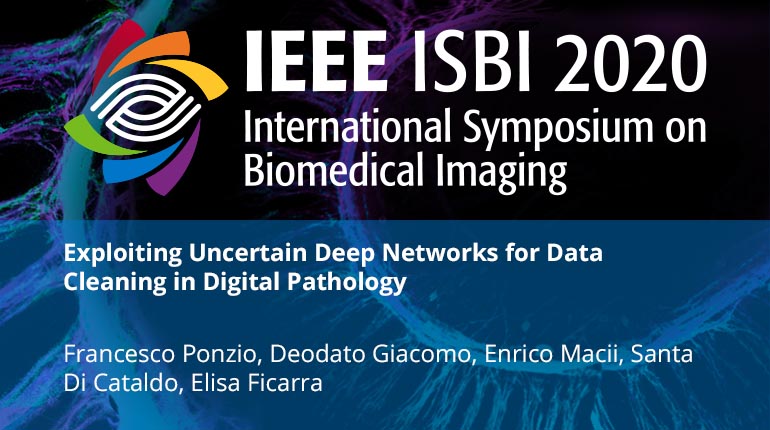
Already purchased this program?
Login to View
This video program is a part of the Premium package:
Exploiting Uncertain Deep Networks for Data Cleaning in Digital Pathology
- IEEE MemberUS $11.00
- Society MemberUS $0.00
- IEEE Student MemberUS $11.00
- Non-IEEE MemberUS $15.00
Exploiting Uncertain Deep Networks for Data Cleaning in Digital Pathology
With the advent of digital pathology, there has been an increasing interest in providing pathologists with machine learning tools, often based on deep learning, to obtain faster and more robust image assessment. Nonetheless, the accuracy of these tools relies on the generation of large training sets of pre-labeled images. This is typically a challenging and cumbersome process, requiring extensive pre-processing to remove spurious samples that may lead the training to failure. Unlike their plain counterparts, which tend to provide overconfident decisions and cannot identify samples they have not been specifically trained for, Bayesian Convolutional Neural Networks provide a reliable measure of classification uncertainty. In this study, we exploit this inherent capability to automatize the data cleaning phase of histopathological image assessment. Our experiments on a case study of Colorectal Cancer image classification demonstrate that our approach can boost the accuracy of downstream classification by 15% at least.
With the advent of digital pathology, there has been an increasing interest in providing pathologists with machine learning tools, often based on deep learning, to obtain faster and more robust image assessment. Nonetheless, the accuracy of these tools relies on the generation of large training sets of pre-labeled images. This is typically a challenging and cumbersome process, requiring extensive pre-processing to remove spurious samples that may lead the training to failure. Unlike their plain counterparts, which tend to provide overconfident decisions and cannot identify samples they have not been specifically trained for, Bayesian Convolutional Neural Networks provide a reliable measure of classification uncertainty. In this study, we exploit this inherent capability to automatize the data cleaning phase of histopathological image assessment. Our experiments on a case study of Colorectal Cancer image classification demonstrate that our approach can boost the accuracy of downstream classification by 15% at least.
 Cart
Cart Create Account
Create Account Sign In
Sign In





